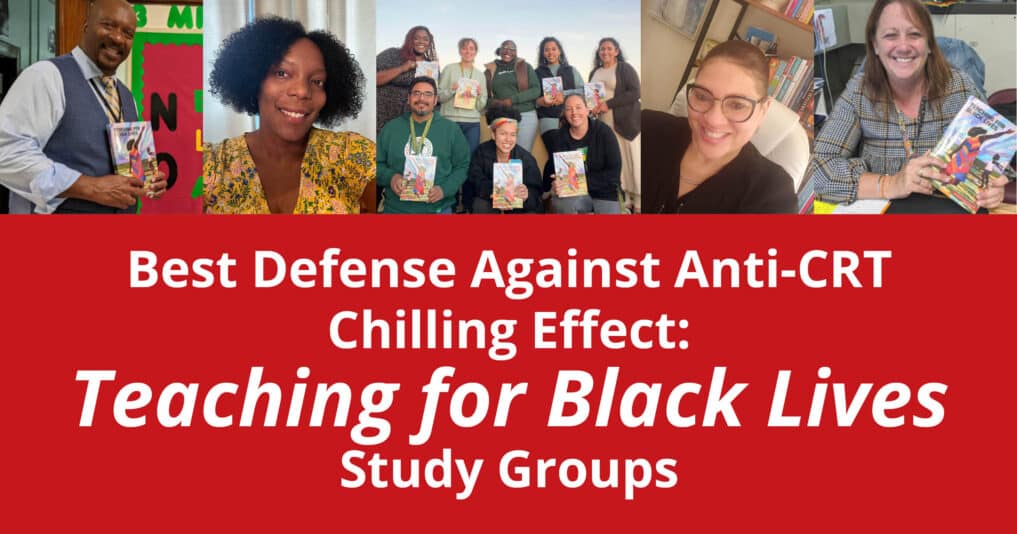
In the face of increased attacks on teaching honestly about history, the climate, LGBTQ identity, and more — teachers need each other. In many states, unions or a sympathetic school district administration provide support. But in others, teachers face the laws and threats alone. Here are just a few of the examples we’ve received from teachers about the impact of the right’s assault on teaching and learning:
We have educators unable to fulfill Black history month plans due to the lack of diversity in books and due to new laws and regulations on what they can and cannot read.
I’m terrified to say anything about enslavement because it might make students “uncomfortable.” I also can’t recommend ANY books because a parent might not like it and then I could be charged with a felony.
Books are being removed from our media center and I can no longer use certain resources (ex. 1619 Project) in my curriculum as a U.S. History teacher.
They would not let me teach Just Mercy by Bryan Stevenson for the past two years.
I had to remove my “protect trans kids” poster from my classroom wall.
We are not allowed to say social emotional learning because it’s “tied to CRT.”
It is creating a chilling effect on education. We continue to teach the truth, but with much less certainty what the consequences will be for doing so.
Three years ago we launched Teaching for Black Lives study groups in schools around the country. They provide teachers support, resources, and encouragement to teach young people honestly about systemic racism and how to organize for justice. Through multiple opportunities — the study groups and related classes and workshops — educators join a national network of teachers, school librarians, counselors, administrators, and school staff who are defying efforts to ban what students can learn in school by vowing to teach for Black lives.
Educators report that the study groups not only deepen their knowledge and improve their practice — they also increase their resolve to continue teaching honestly. And they provide a community of accountability and mutual support.
These groups also challenge the mainstream media’s recent narrative that after the historic uprisings of 2020, everyday people’s commitment to combat racism and white supremacy is waning. Not only have these educators sustained the antiracist work taken up by so many in 2020, they have deepened and expanded it. That is what the right wing is trying to suppress. And that is what the study groups nurture.
Here is what study group members have told us.
These past three school years, the list of burdens educators have had to confront is long and heartbreaking. A pandemic that killed more than a million people in the United States — including family members, students, and colleagues — and is ongoing; critically understaffed schools, requiring the juggling of an impossible number of responsibilities, all while forgoing planning time and lunch and bathroom breaks; the accumulated social stressors of the last three years manifesting in children’s needs for more support of all kinds; all too frequent school shootings; and ongoing rightwing attacks on teaching an honest account of white supremacy in the past and present, and on LGBTQ+ youth.
And yet we have witnessed a remarkable demonstration of educators’ commitment to build more just schools. Through the 100 Teaching for Black Lives study groups in 30 states, more than a thousand educators are coming together to learn, support one another, and take action. Let’s triple the number of study groups for the next school year. Teachers need the support and solidarity.
Make a gift through the Zinn Education Project today and indicate your contribution is for the Teaching for Black Lives study groups.
Start a Study Group
If you and colleagues are interested in hosting a study group, sign-up below to be notified when applications are available for the 2023-2024 school year.

